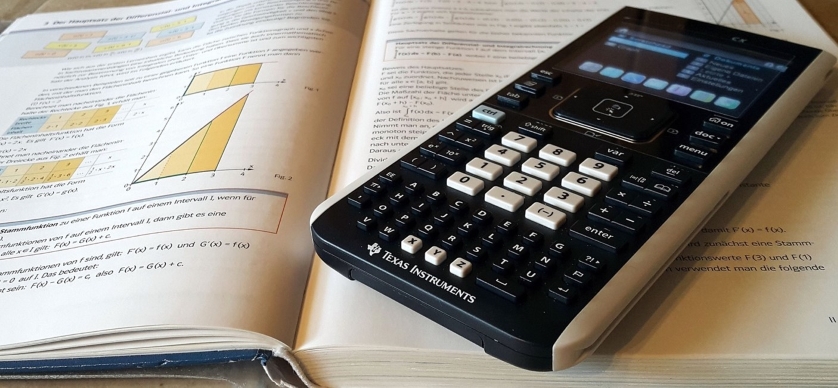Mathematics can be both an adventure and a puzzle. For many students, tackling math is like climbing a mountain—it’s challenging, but reaching the top is incredibly rewarding. Math builds on itself, so mastering foundational concepts is key to progressing confidently through each topic. Developing good study habits early on can make the journey smoother, boosting comprehension and making math less daunting. In this article, we’ll dive into essential math tips, and the advantages of using textbooks and other resources to make studying math as efficient and enjoyable as possible.
Contents
Understanding the Basics
In math, the basics are your best friends. Mastering these foundational skills is like setting up a strong base for a skyscraper. Without a solid grasp of the fundamentals, the more advanced topics can feel unstable or overwhelming. Start by revisiting core concepts such as addition, subtraction, multiplication, and division. No matter what level of math you’re at, understanding these primary operations is essential.
One effective approach is to practice breaking down complex problems into smaller, manageable steps. This is especially helpful with challenging topics like algebra or geometry. For example, if you’re working on a multi-step equation, break it down by isolating each part and working through it methodically. This way, you’re less likely to get lost along the way, and your solutions are more accurate.
Another trick is to use mnemonic devices, especially for memorising formulas. For instance, “Please Excuse My Dear Aunt Sally” is a classic mnemonic for the order of operations: parentheses, exponents, multiplication, division, addition, and subtraction. Establishing these kinds of study habits early on builds a toolkit of strategies that you can rely on for any math topic.
Leveraging Math Textbooks

If you’re looking for a reliable, structured way to tackle math, Cambridge maths textbooks are a fantastic resource. Widely respected in educational circles, these textbooks are meticulously designed to align with curriculum standards and provide a clear, logical progression of topics. Here’s how Cambridge math textbooks can help:
- Comprehensive Content Coverage: Cambridge math textbooks cover all essential concepts in-depth, which means you’re getting a complete, reliable foundation. They’re structured in a way that makes learning easy to follow, even for complex topics. Each chapter builds on the last, creating a natural learning path that takes you from simple concepts to advanced problems.
- Extensive Practice Exercises: One standout feature of these textbooks is the abundance of practice problems. These exercises range from basic questions to more complex, multi-step problems that test comprehension and application. Practising a variety of problems not only reinforces learning but also boosts confidence—when it’s time for exams, you’ll feel prepared to tackle questions of all kinds.
- Real-World Applications: Cambridge math textbooks often include real-world examples to illustrate how math applies to everyday life. These examples make the learning process more relatable and show how useful math can be beyond the classroom. Understanding the practical applications of math can also be a big motivator for students who may not immediately see the value in abstract numbers and equations.
How to Use Textbooks Effectively
To get the most out of your textbook, start by reading each chapter’s introduction carefully. The intros often provide context and outline what you’ll learn, giving you a roadmap for the topic. Next, tackle the exercises in sequence—don’t skip around. This progressive approach ensures you’re building skills in the right order. After completing each section, review your answers and work through any mistakes; understanding why you got something wrong is often as valuable as getting it right.
When preparing for exams, go back through the chapters and review the real-world application problems, which are usually the most challenging. These help deepen your understanding and provide the kind of comprehensive knowledge that sticks.
Effective Study Techniques and Other Resources for Practice

Now that you have the basics down and a solid resource in the Cambridge maths textbook, it’s time to fine-tune your study techniques. Here are a few methods to make your math study sessions more productive:
- Spaced Repetition: This is a technique that involves spacing out your practice over increasing intervals of time. For instance, if you learned a new concept today, review it tomorrow, then three days later, then a week later, and so on. This helps reinforce memory and ensures that the information stays fresh.
- Active Recall: Instead of passively reading over your notes, quiz yourself on the material. Cover up the solutions and try to solve the problem from scratch. Active recall is a proven method for boosting retention, as it forces your brain to retrieve information, making it stronger in your memory.
- Digital Resources and Apps: In addition to your Cambridge math textbook, several online resources and apps make math practice more engaging. Websites like Khan Academy offer free video tutorials that explain concepts visually, while apps like Brilliant.org and Photomath provide interactive problem-solving experiences. These tools can supplement your textbook practice by offering different perspectives and additional exercises.
- Study Groups: If you’re struggling to stay motivated or find certain topics challenging, consider forming a study group with friends or classmates. Sometimes, explaining a concept to someone else helps clarify it in your mind, and hearing others’ perspectives can reveal new ways to approach problems.











